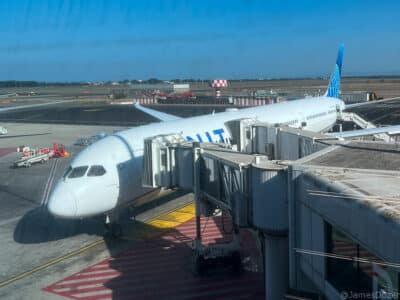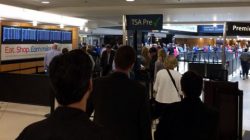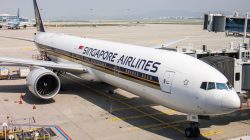The tariff wars are heating up again and the next round of tariffs is scheduled for October 18, 2019. This next foray into tariffs on European goods will have implications for U. S. Airlines.
Tariff History
Tariffs are nothing new to the United States. This country sought its’ independence from England over tariffs on tea – The Boston Tea Party. Tariffs are a tax on imported goods to either create new government revenue or to try to counteract unfair trade practices. In some cases, tariffs have been used to preserve American jobs. Tariffs are ultimately paid for by the purchaser of these “taxed” goods. The use of tariffs can and do backfire when the other country institutes retaliatory tariffs. The current U. S. Administration has been issuing tariffs on goods from China, Mexico, Canada and now the European Union (EU). Some basis for sanctioning tariffs this time is to settle on-going disputes such as Boeing vs. Airbus.
Boeing vs. Airbus
This dispute has been going on for decades between the two aircraft giants. Airbus began with subsidies from countries in the EU. Boeing had challenged those subsidiaries because it was giving Airbus an unfair competitive advantage. Boeing took its case to the World Trade Organization (WTO) which has been waged since 2004. The WTO found that EU aid for Airbus had resulted in lost sales for Boeing. Yesterday, the WTO gave the go-ahead to the Trump Administration to launch this new round of tariffs. Recently, Boeing went after Bombardier over its’ CS100 and CS300 regional jet airlines and succeeded in winning tariffs on sales of those aircraft to U. S. airlines. This move backfired on Boeing as Bombardier virtually handed that program over to Airbus as the Airbus A220.
New Tariffs on European Aircraft
The first thing to keep in mind is that aircraft acquisition is the largest expense borne by airlines. The new tariffs will hit Airbus aircraft with a new 10% tariff. This list price of the Airbus A350-900 is $317 million (in 2018 dollars). Airlines usually negotiate a sizeable discount so let’s discount this aircraft by 50% to $159 million. This would add an additional $15.9 million to the cost of that aircraft. Aircraft orders take years from contract signing to aircraft delivery so there is no way that airlines could have planned to this cost increase.
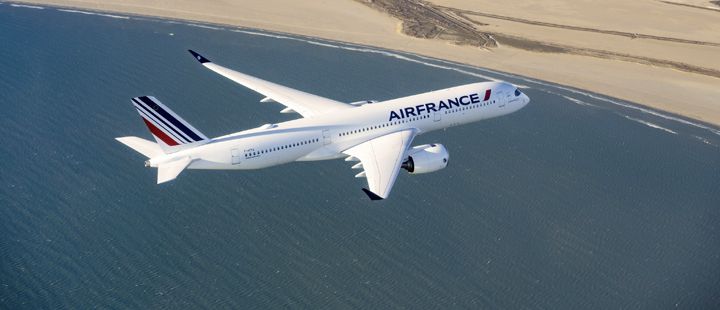
Your Onboard Single-malt Scotch, French Wine and that Cheese Plate
The new tariffs will also increase the cost of imported food and beverages served on U. S. airlines. These items will be affected by the new 25% tariffs. This could affect many ingredients in onboard catering including imported meat, vegetables including olives, olive oil, fruit and seafood.
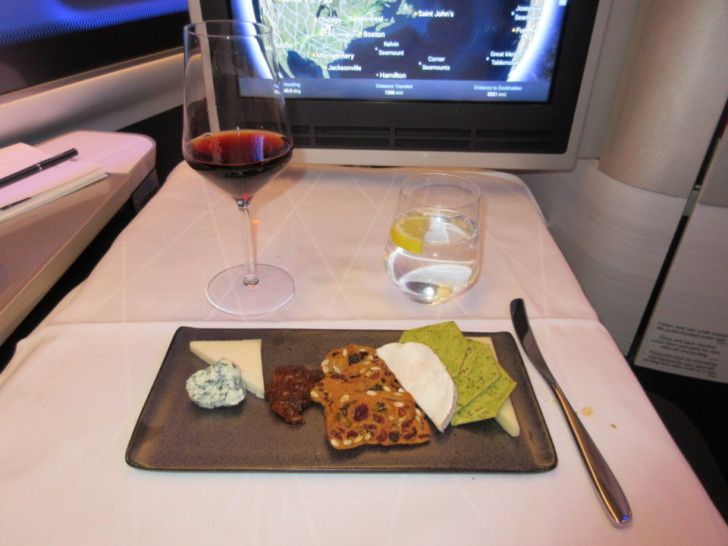
Here is the list of items subject to the new tariffs. Below is page 1 of the new tariff list.
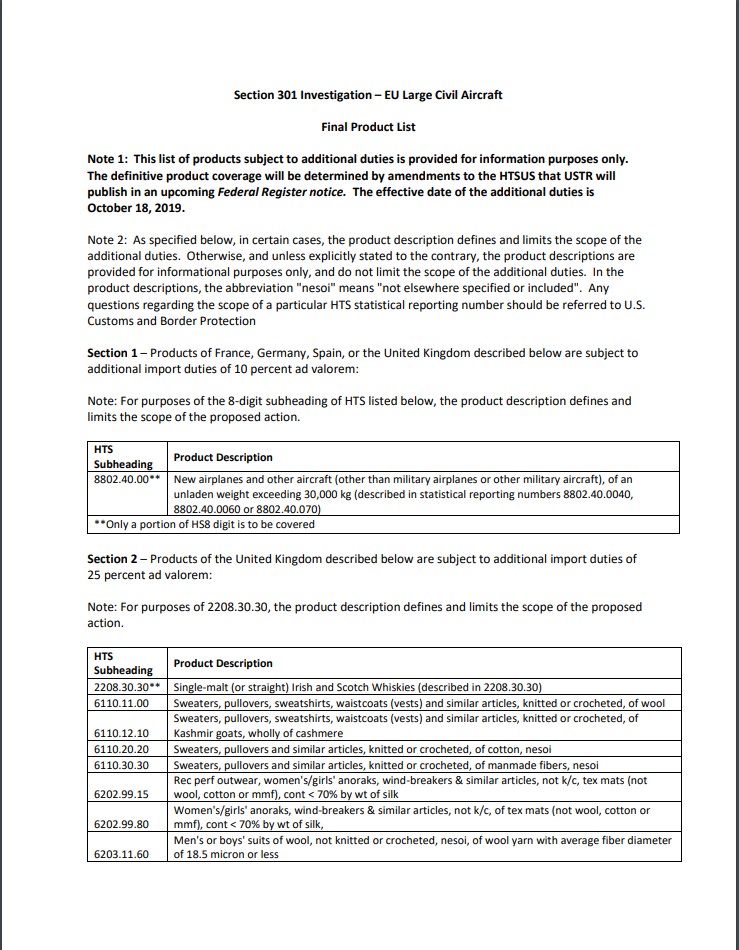
My Take on These Tariffs
Obviously, these are a lot of expenses that the airline industry is not prepared to face. From the airline perspective, adding tens of millions of dollars per aircraft is not something the industry can tolerate. Will airlines be forced to cancel or reduce aircraft orders? As a passenger, I might have to forgo my single-malt Scotch and the cheeseboard as the airlines will look to cut costs on onboard catering. I suspect that the airline industry will lobby the Administration to appeal these new tariffs.

